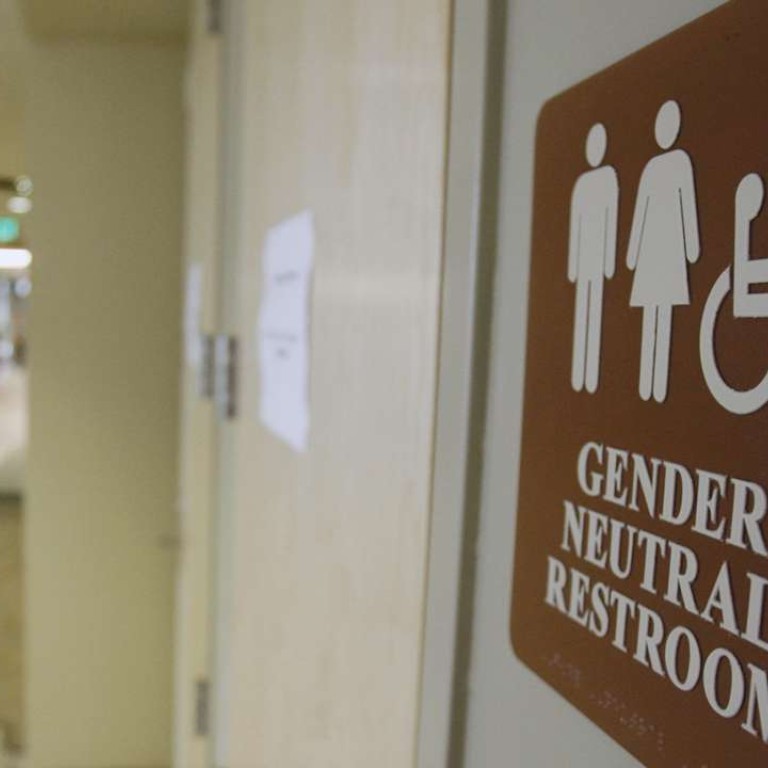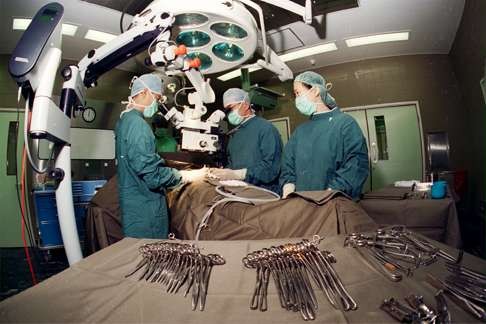
Hong Kong gender identity disorder sufferers are a forgotten minority
Individuals who feel trapped between male and female identities lack help in a city experts say is ill-equipped to treat patients who need not only medical and social assistance, but understanding of their plight
Bo Bo* (who did not wish to be photographed for the story) has been the odd one out in his family since he was born. As a girl when he was growing up, Bo Bo refused to wear dresses or school uniform, or use public toilets.
“My parents kept hitting me, but I still refused to do it. Having no idea that there is a condition called gender dysphoria, they just thought I was an unruly child,” she says.
READ MORE: No child should endure my ordeal, says sex-disorder Hongkonger forced to be a boy
Born in Dongguan, she came to Hong Kong for primary school in 1996 and completed secondary school in the city. After she moved out on her own at the age of 23 to shake free of parental control, she started looking online for information about her condition.
“I first went to China to see a plastic surgeon. He told me there was no need for any surgery as I already looked male in appearance. I came back to Hong Kong dejected. In 2009, a friend recommended me to seek treatment at Kwun Tong Yung Fung Shee psychiatric clinic. The government psychiatrist there didn’t know how to handle my case. It seemed that he never treated patients with gender dysphoria before. He just kept asking me to try to be a girl. I saw him for a year and I was frustrated.”
Bo Bo’s plight is a common story in the local transgender community who seek treatment for gender dysphoria in a public hospital. Also known as gender identity disorder, gender dysphoria sufferers experience discomfort or distress because there is a mismatch between their biological sex and gender identity.
Patients suffering from gender dysphoria include intersex people (people born with indistinct or ambiguous sexual anatomy or with traits of both sexes, making it incorrect to define them as either male or female) and transsexuals (people who do not identify with their biological sex at birth and wish to realign their gender and their sex through medical procedures including hormone treatment and surgery).

Greg Mak Kai-lok, a specialist in psychiatry who formerly worked for the government and has treated 126 gender dysphoria patients in the public sector, says the public sector is ill equipped to treat such patients.
“The public sector treats gender dysphoria as any other mental disorder,” says Mak, “but gender dysphoria is not a condition that general counselling stuff can handle. Sufferers are unemployed for a long time and are subject to long-term bullying which ordinary people cannot understand.”
There are about 200 such patients receiving care in the public sector now. Psychiatrists, clinical psychiatrists, endocrinologists, surgeons, social workers and vocational therapists scattered around public hospitals are involved in their treatment.

“I signed up for it because I want to specialise in gender dysphoria. It involves a four-week training in the US and continuous training afterwards. It is for psychiatrists, endocrinologists and other mental health professionals involved in gender dysphoria treatment, which is a highly specialised sub-specialty that covers medical, surgical and legal issues.
“In my decades serving in the public sector, I have treated the most number of such patients and there’s never a centralised team treating the patients, which is a standard practice in overseas countries. As far back as 2008, I started voicing my opinions to the government on the need for the establishment of a centralised team. But nothing has happened so far. The small number of patients means the government treatment for them is not prioritised.”
There’s never a centralised team treating the patients, which is a standard practice in overseas countries
Depending on the severity of the condition, a gender dysphoria patient may receive counselling, hormone injection therapy without gender reassignment surgery. For extreme cases that need surgery, the patients usually have to receive at least two years of assessment first.
Without a centralised team of medical and mental professionals, patients are bumped around different hospitals and doctors without a comprehensive picture of the patients’ medical history.
Bo Bo’s experience illustrates the shortcomings of the public system.
“At Kwun Tong Yung Fung Shee psychiatric clinic, the psychiatrist just kept telling me there was nothing wrong with being a girl for a year. A transsexual friend of mine later gave me Dr Mak’s email. I emailed him. And he replied to me six months later, saying he would have my information at the Kwun Tong hospital transferred to him.
“I originally thought that after my one-year treatment at the Kwun Tong hospital, I might be able to receive gender reassignment surgery soon after seeing Dr Mak. But when I saw him, I needed to describe my condition from scratch all over again, as if I had not had any treatment at a public hospital before,” says the 30-year-old, who is unemployed now.
In 2012, Bobo finally received her first surgery for breast removal at Prince of Wales Hospital. In 2014, she received further surgery on her genitalia and had the gender on her ID changed from female to male in December 2014. But Bo Bo says she is dissatisfied with both surgeries.
“Hong Kong’s surgical standard for such surgery in the public hospital system is not really up to standard. My chest shape doesn’t look like a man’s now which means I cannot swim bare-chested at the beach. For the genitalia surgery, I just told the surgeon to do the basic stuff as I heard of stories of others who have botched surgeries for penis construction in public hospitals.
“My friend, who received surgery to construct a penis of normal size, ended up staying in hospital for months suffering from frequent inflammation. Afraid that a long hospital stay will make it difficult for me to keep my surgery secret from colleagues and friends, I just asked the surgeon to construct a tiny penis in the end to facilitate change of gender on the ID. Due to the tiny size, I still have to squat to pee like a woman after the surgery.”

“I have no urgency to do it now as I don’t have a girlfriend. If I get [a partner] in the future, I will be more determined to do that. But surgery outside Hong Kong will cost at least HK$300,000.
“I am a cycling enthusiast. I get scared every time my cycling buddies take a toilet break together on our cycling outing. I will just say I don’t need it.
“When I was in hospital last time after surgery, the patient in the bed next to mine told me he’s a former woman. He was in hospital for liposuction. Apart from the lack of stubble on his face, you could never guess he was actually a woman before. He told me he did his gender reassignment surgery in Taiwan. Even his wife of more than 10 years does not know he was a woman before. I look forward to having that level of surgery one day.”
* Not her real name

